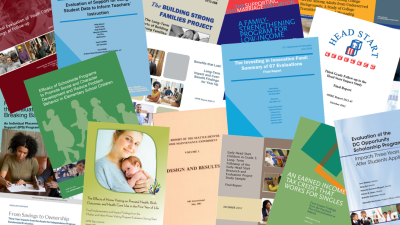The No-Spin Evidence Review
We summarize recent program evaluations and explain what the evidence really shows. More >
Latest No-Spin Evidence Report
PNAS (October 2025) published findings from a national RCT of public Montessori preschools. The study abstract claims positive impacts on early reading and cognitive skills at the end of kindergarten but doesn’t mention a key study limitation: Sample loss (“attrition”) of over 80% that differed between the treatment and control groups, rendering these findings only suggestive – not reliable.
What We Do
We provide plain-language, no-spin summaries of recent research findings about “what works” in social spending. We also highlight a common problem in research reporting: Study abstracts too often portray programs as effective when the study’s results don’t support such claims.
We focus on abstracts because of their central importance in research communication. Many readers rely on abstracts for the main study take-aways (due to time constraints or paywalls on full-report access) and, in our experience, abstracts’ exaggerated claims lead to widespread over-labeling of programs as “evidence based” and, in some cases, the expansion of ineffective programs.
We mainly report on randomized controlled trials (RCTs) because, when feasible and well-conducted, they're considered the strongest method of evaluating program effectiveness.
Our target audience is policy officials, program providers, researchers, and others who wish to keep abreast of the latest rigorous research findings – as well as the researchers, journal editors, and peer reviewers who have it within their power to ensure accurate study reporting.
Learn more about our review process.
